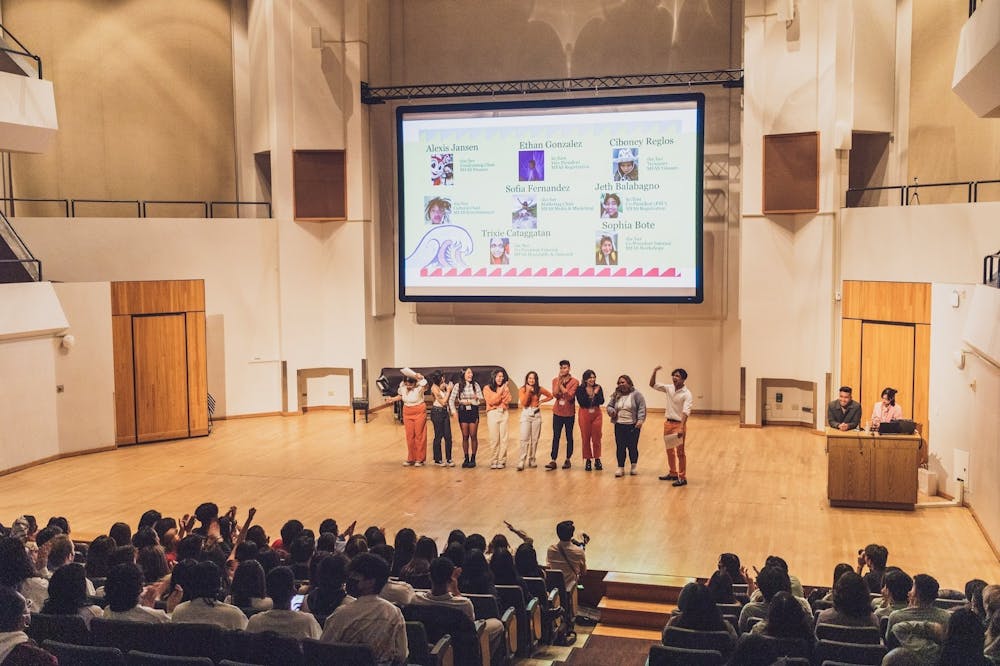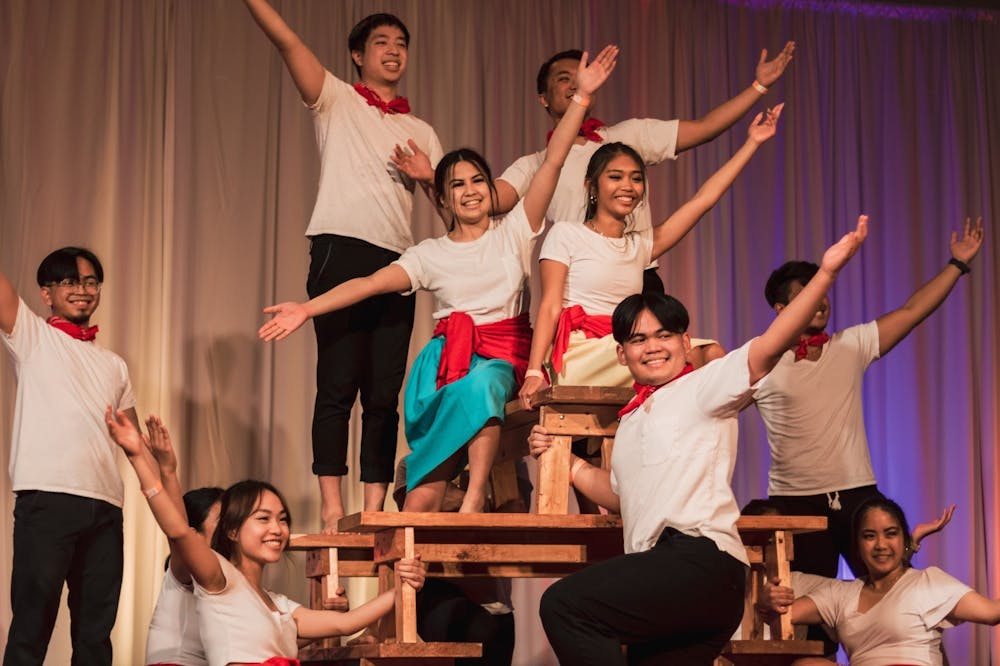The University of Wisconsin-Madison’s campus hosted the Midwest Filipino American Summit (MFAS) on Saturday.
Working hand in hand with the university's Filipinx American Student Organization (FASO), the Midwest Association of Filipino Americans (MAFA) was able to organize the summit, which drew over 234 attendees from 13 different colleges across the Midwest.
Excitement among MFAS attendees and organizers was high as it was the first time since the onset of the COVID-19 pandemic that the event could be held in person.
“Seeing the resurgence and revival of our annual MFAS event really empowered our community’s desire to be together and uplift our region,” Jacinta Rivera, MFAS attendee and president of the University of Minnesota-Twin Cities’ Philippines Student Association told The Daily Cardinal.
Founded in 2008, MAFA is an organization dedicated to connecting and uniting Filipinos in different states across the Midwest. Each year they select one of their 23 member schools as the host of MFAS.
The MFAS conference gives all of these students an opportunity to come together once a year and bond over their shared history and heritage as Filipino Americans in the Midwest.
For organizers, having the summit in person is a critical aspect to MAFA’s core values and goals.
“The most important part about having this conference is that people get to share their experiences and relate on similar levels,” MAFA President and former internal president of FASO Sophia Sanchez said. “Each school can be unique in their own right, so combining those schools allows people to share experiences.”

Courtesy of Michael Luy
This year’s theme was “Kinabukasan: Our Future Is Now.” There was a heightened focus on social justice in the United States as well as how Filipino Americans can support their community.
Rivera emphasized the richness of Filipino culture highlighted at the summit.
“Due to [the] Philippines being an archipelago, and [its] geographical location in Asia, a lot of different countries have influenced our culture, making it incredibly unique. We have a mix of Spanish, Malaysian and Pacific islands all combined into one new culture,” said Rivera.
At the opening ceremony of MFAS on Saturday, students in the crowd sang songs, shared chants and cheered each other on during introductions. Their passion, energy and excitement for the day’s events resonated throughout the building.
“Since the Filipino presence isn't as saturated out here in the Midwest, the fact that we can create this safe place, where you can have a community within your region and campus is incredible,” Sanchez stated.
The experiences and challenges of being a Filipino in the Midwest are unique due its rural and racially homogeneous nature.
“The population of Filipino Americans in the Midwest is completely different from other parts of the country; the east and west coasts are very populated with Filipinos, [which is] why it is so important that we have this event where we get to reunite with each other,” Trixie Cataggatan, external president of FASO, said in an interview with the Cardinal.
There are approximately 4.2 million people of Filipino descent in the United States according to 2019 data from the Pew Research Center. The Chicago metropolitan area is home to the highest number of Filipino Americans in the Midwest, totaling about 145,000 people.
“I only get to learn about the experiences of students in our school’s organization in the Midwest, but this event allows me to hear the experience of other Midwestern Filipinos at other schools,” continued Cattagatan.
For Rivera, the small number of Filipino Americans in the Midwest has allowed her to form a tight-knit community.
“I now see that there is a huge advantage to being a Filipino in the Midwest, because of how scarce they are here compared to California and New York. Here, we immediately want to get connected with one another,” Rivera said. “The scarcity of us in the Midwest forces us to band together and form a community.”
A collaborative event like MFAS gives Filipino American students across the Midwest a platform, providing them with a sense of cultural belonging.
“To better understand Filipinos, you have to stop putting us in a box,” Rivera emphasized. “We are not just Asian, we are not just Spanish, we are not just Pacific. We are unique in our birthright. We don’t fit into a singular identity box. Once people understand that, you will be able to understand who we truly are and not what history has written for us.”

The Filipinos in Alliance Cultural group from the University of Illinois Chicago performed the “sayaw sa bangko” or “dance on the bench” at MFAS's variety show over the weekend.
Courtesy of Michael Luy
Yet, no matter the struggles Filipino Americans have faced — they’ve overcome them, said Rivera.
“We are resilient people. Regardless of hurricanes and colonizing countries, we have always been able to bounce back,” Rivera said. “I believe that comes out in our hospitality. I believe that we have brought that hospitality to the United States, and it allowed us to form a community where we could share our pride and our heritage.”
“This weekend’s MFAS conference was just another great example of that,” Rivera concluded.






